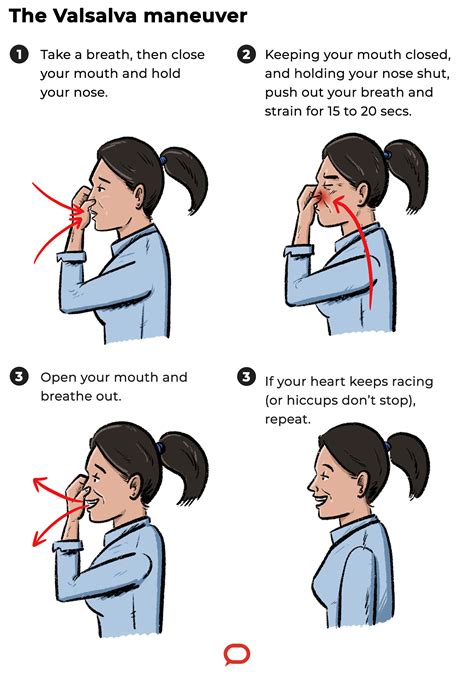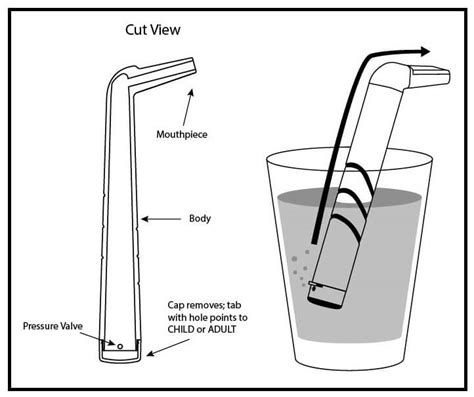Intro
Discover 5 ways to get rid of hiccups fast, including home remedies, breathing techniques, and natural cures for hiccup relief, stopping hiccup symptoms and finding quick hiccup solutions.
Hiccups are sudden, involuntary contractions of the diaphragm muscle, which can be quite annoying and disrupt daily activities. While they are usually harmless and resolve on their own, there are several ways to get rid of them. In this article, we will explore the importance of understanding hiccups, their causes, and most importantly, effective methods to stop them.
Hiccups can occur at any time, and they often seem to appear out of nowhere. They can be triggered by a variety of factors, including eating too quickly, drinking carbonated beverages, or experiencing sudden changes in temperature. For some people, hiccups can be a recurring problem, while for others, they may only occur occasionally. Regardless of how often they happen, it's essential to know how to get rid of them to avoid discomfort and embarrassment.
Understanding the causes of hiccups is crucial in finding effective solutions. The diaphragm is a dome-shaped muscle that separates the chest cavity from the abdominal cavity. When it contracts, it helps us breathe in by expanding the lungs. However, when it becomes irritated or stimulated, it can contract involuntarily, leading to hiccups. By identifying the triggers and understanding the mechanisms behind hiccups, we can develop strategies to prevent and treat them.
What are Hiccups

Causes of Hiccups
The causes of hiccups are diverse and can be attributed to various factors, including: * Eating too quickly or drinking too much * Swallowing air * Drinking carbonated beverages * Sudden changes in temperature * Stress and excitement * Certain medications, such as anesthetics and steroids * Underlying medical conditions, such as GERD or laryngitisEffective Methods to Stop Hiccups

Home Remedies for Hiccups
There are several home remedies that can help stop hiccups, including: * Honey: Mixing a spoonful of honey with water can help soothe the diaphragm and stop the hiccups. * Ginger: Ginger has natural anti-inflammatory properties that can help calm the diaphragm and stop the hiccups. * Lemon: Sucking on a lemon can help stimulate the vagus nerve and stop the hiccups. * Sugar: Swallowing a spoonful of sugar can help stimulate the vagus nerve and stop the hiccups.Medical Interventions for Hiccups

Prevention of Hiccups
Preventing hiccups is often easier than treating them. Here are some tips to help prevent hiccups: * Eat slowly and mindfully * Avoid drinking carbonated beverages * Avoid sudden changes in temperature * Manage stress and excitement * Avoid certain medications that can trigger hiccupsConclusion and Final Thoughts

Final Recommendations
If you experience persistent or recurring hiccups, it's essential to consult with a healthcare professional to rule out any underlying medical conditions. In the meantime, try some of the home remedies and methods outlined in this article to help stop the hiccups. Remember to breathe deeply and slowly, hold your breath, and apply pressure to the diaphragm or solar plexus to help calm the diaphragm and stop the hiccups.What are the most common causes of hiccups?
+The most common causes of hiccups include eating too quickly, drinking carbonated beverages, sudden changes in temperature, stress and excitement, and certain medications.
How can I prevent hiccups?
+To prevent hiccups, eat slowly and mindfully, avoid drinking carbonated beverages, avoid sudden changes in temperature, manage stress and excitement, and avoid certain medications that can trigger hiccups.
What are some effective methods to stop hiccups?
+Some effective methods to stop hiccups include breathing deeply and slowly, holding your breath, gargling with water, applying pressure to the diaphragm or solar plexus, and drinking water.
When should I seek medical attention for hiccups?
+You should seek medical attention for hiccups if they persist for more than 48 hours, are accompanied by other symptoms such as pain or difficulty breathing, or if you have a underlying medical condition that may be causing the hiccups.
Can hiccups be a symptom of an underlying medical condition?
+Yes, hiccups can be a symptom of an underlying medical condition, such as gastroesophageal reflux disease (GERD), laryngitis, or other conditions that affect the diaphragm or the nerves that control it.
